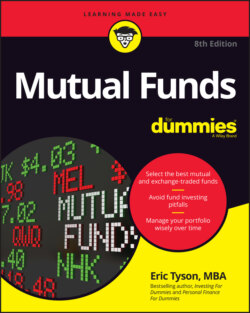Читать книгу Mutual Funds For Dummies - Eric Tyson - Страница 91
Understanding ETF advantages
ОглавлениеLike index funds, the promise of the best ETFs is low management fees. I say “promise” because when evaluating ETFs, you must remember that the companies creating and selling ETFs, which are mostly large Wall Street investment firms, are doing it to make a healthy profit for their firms. Although the best index funds charge annual fees of about 0.1 percent (and some even less), the vast majority of ETFs actually charge fees much greater than that.
I compare the best index funds with the best ETFs (which do have low expense ratios) in the section “Identifying the best ETFs,” later in this chapter.
In addition to possible slightly lower expenses, the best ETFs have one possible additional advantage over traditional index funds: Because ETFs may not be forced to redeem shares to cash and recognize taxable gains (which can happen with an index fund), they may be tax friendlier for nonretirement account investors. (Note: ETFs do have to sometimes sell and buy new holdings as adjustments are made to the underlying index that an ETF tracks.)
If you can’t meet the minimum investment amounts for index funds (which are typically several thousand dollars), you may be happy to hear that you face no minimums when buying an ETF. However, you must factor in the brokerage costs to buy and sell ETF shares through your favorite brokerage firm, and be sure that those fees don’t greatly boost your costs. Many leading brokers have eliminated brokerage commissions on many ETFs, so be sure to comparison shop (see my short list of recommended firms in Chapter 9). Because of the brokerage costs, ETFs aren’t a good vehicle for investors who seek to make regular monthly investments unless you can do this without paying a brokerage fee.
